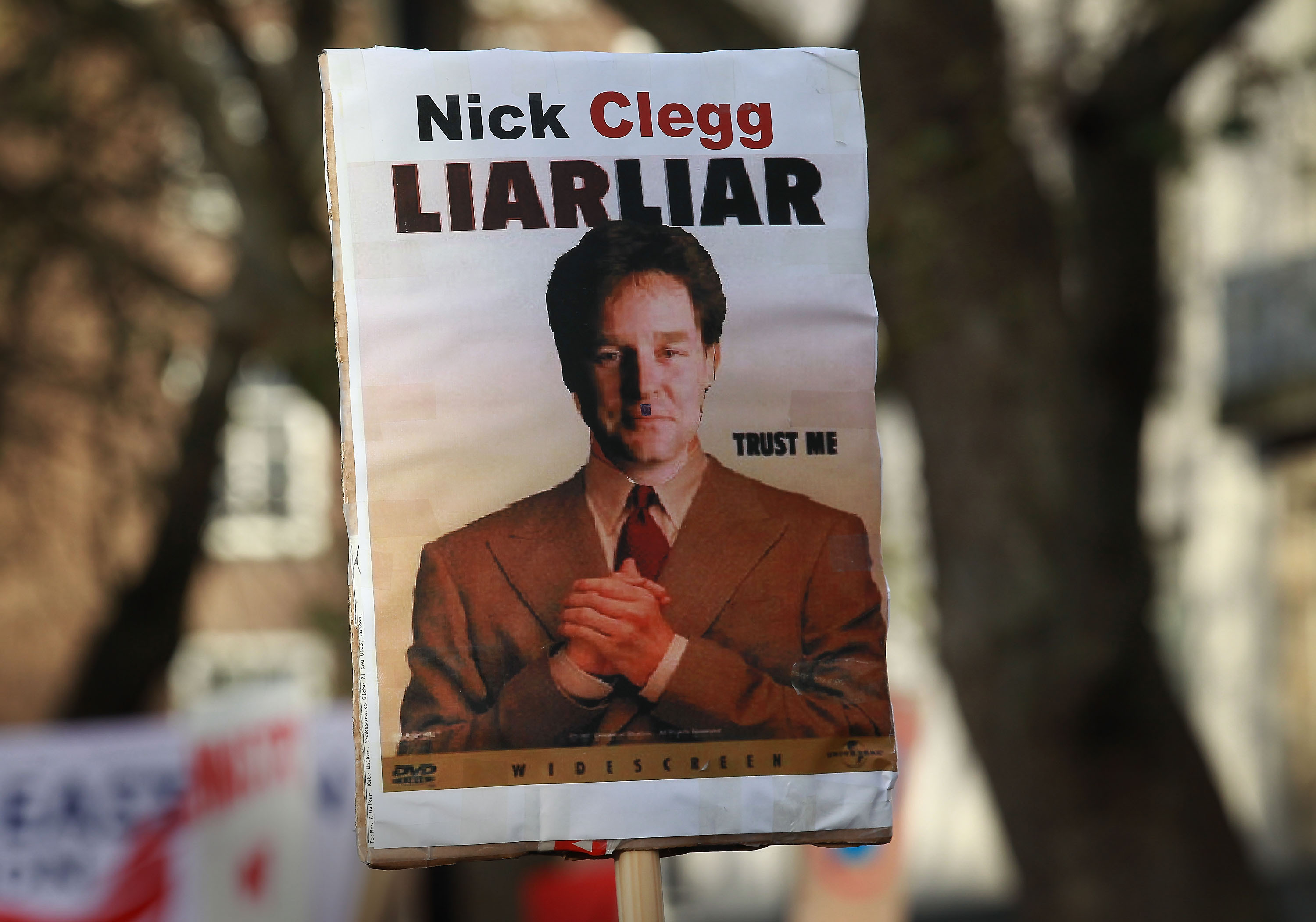 One of the things I heard yesterday when I strolled around the edges of the protests,
particularly from older people, was how the coalition’s policies had politicised Britain’s young. “It has really made my children wake up”, said an elderly bystander with a
wistful look in his eyes. Student leaders say they now hope to punish Lib Dems who voted for the tuition fees, targeting MPs in seats such as Bath, Burnley, Bradford East, Bristol West and
Brent Central.
One of the things I heard yesterday when I strolled around the edges of the protests,
particularly from older people, was how the coalition’s policies had politicised Britain’s young. “It has really made my children wake up”, said an elderly bystander with a
wistful look in his eyes. Student leaders say they now hope to punish Lib Dems who voted for the tuition fees, targeting MPs in seats such as Bath, Burnley, Bradford East, Bristol West and
Brent Central.
The sense of rage directed against the Liberal Democrats comes, I suspect, from a deeper sense of betrayal – and not simply student dissatisfaction over today’s issue. In politics time flies,
but less than a year ago the Lib Dems experienced a convention-defying pre-election surge because, as one student wrote in The Guardian, their policies – to scrap tuition fees, opposition to the Iraq war and plans to
scrap Cold War weapons systems – “resonate[d] with the pragmatic idealism of youth.” According to a Populus poll, before the election the third biggest party enjoyed a massive 40
per cent of support amongst 25 to 34-year-olds, and similarly strong support among 18 to 24-year-olds
Now Nick Clegg has not only gone against a specific (if foolish) promise which directly affects students, but has shown himself to be a politician, much like those on the Tory and Labour benches.
He has marked himself as embody who knows when to compromise, and knows the responsibility that comes with holding office in times of upheaval. That is not necessarily what the Deputy Prime
Minister’s erstwhile army of fans wanted.
What impact will the current student disillusionment with the Lib Dems actually have? Research by the Electoral Commission has consistently shown that 18-24 year olds are less likely to take part
in elections. In the run-up to the last election only 56 per cent of 17-24 year olds were even registered to vote. This follows a trend, which saw a low turnout of 18–24 year olds in the 2001
and 2005 general elections, as well as in the shrinking and ageing memberships of political parties. Young people remain interested in politics (broadly defined) and are active in alternative modes
of political participation. Judging from the protests many students see their street-based action as being involved in politics. But they do not tend to express their involvement by voting.
This may all change and hurt the Lib Dems. Or it may just be that the current trend continues, Nick Clegg’s actions add to the sense of student frustration with electoral politics, and
– in a few years from now – nothing much will be different. Except the Lib Dems will not court the youth vote as assiduously as they did at the last election.
Daniel Korski
The students vs the Lib Dems







Comments